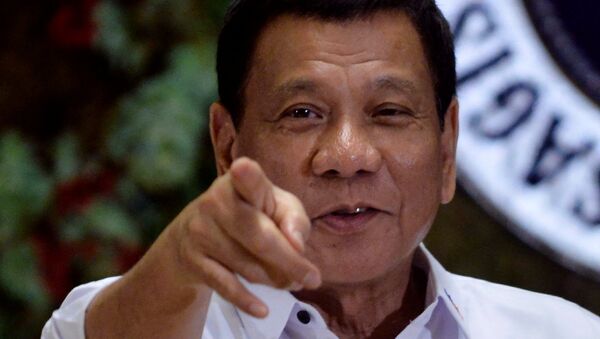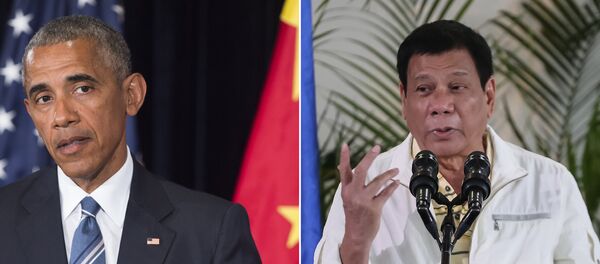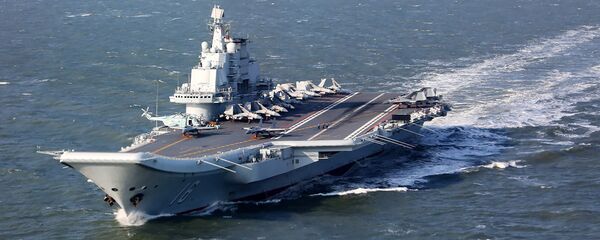Recently, the Pentagon gave the green light for the creation of military infrastructure on five Filipino bases with an American military presence that will support rotational deployments. According to Lorenzana, President Duterte intends to abide by all the agreements which were made in 2014.
Anton Tsvetov, expert from the Center for Strategic Research spoke with Sputnik China in an interview about the future relations of the Philippines with the US.
“The agreement includes the permanent storage of equipment for humanitarian operations, such as search and rescue at sea. Nevertheless, there would be a requirement for storage of equipment meant for the rotational term. It is possible that in Washington, they believe that the agreement has not been violated,” Tsvetov said.
According to the expert, Duterte is not going to terminate the agreement for now but he might revise it.
He further said that in his speech the president has also bluntly said that during his term it will be necessary to have a “hard talk” with Chinese President, Xi Jinping, on the decision of the Permanent Court of Arbitration in The Hague regarding the South China Sea.
In a similar scenario last week, the head of the Senate Committee on Armed Services John McCain put forward a 7.5 billion dollar plan for financing of US armed forces and their allies in Asia.
“Hence, eventually the Philippine leadership must understand that close military cooperation with both the US and China will be extremely difficult to carry out,” Tsvetov said.
The “game of mutual jealousy can be very dangerous,” considering that the Philippines is most in need of external assistance, both economic and military.
The expert further said that Duterte’s decision- making process is viewed by many differently. “Some call it decisiveness, while many others call it unpredictability.”
“In that sense during the administration of Aquino it was much easier. Washington knew exactly that the Philippines heavily relied on the United States and would support US initiatives in the region to an extent,” Tsvetov said.
“In Beijing, planning politics towards Philippines was way easier earlier because confirmation of a confrontation was easier to understand than non-confirmation of a multi-vector policy,” the expert said.
He added that, “Now Duterte makes sudden moves almost every other week and although for now the situation is working in China’s favor, nothing stops the Philippines from turning towards the other side. If real crisis arises, it is doubtful that China will find the Philippines to be a reliable partner,” Tsvetov concluded.





